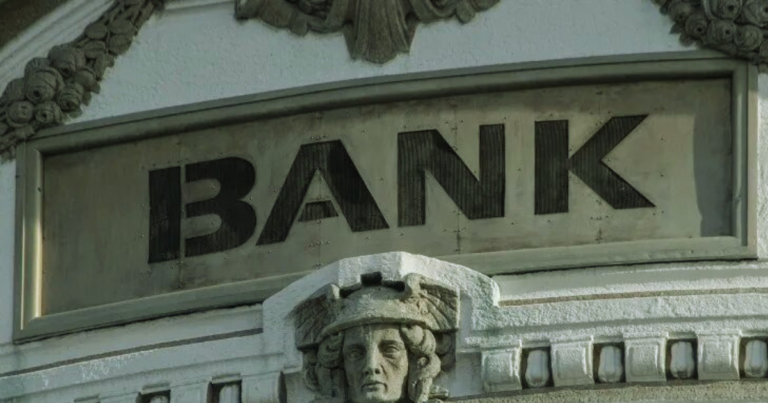The Celsius Withdrawal Hold Shakes the Crypto World
Celsius reported Monday that all “withdrawals, swaps, and transfers between accounts” had been halted, citing “extreme market circumstances. “It is not difficult to define “severe market conditions,” as several deserving candidates are. This includes the sudden downfall of the TerraUSD stablecoin and last Friday’s announcement of a 40-year-high monthly inflation rate of 8.6 per cent. The drop in Celsius affected all cryptocurrencies, with the global crypto value falling below $1 trillion for the first time in January 2021. Bitcoin, the most significant token by market capitalization, fell 14% over the weekend from about $23,000.

A cryptocurrency bank
Celsius’s objective, as stated on its website, is to provide a “platform of selected services that have been forsaken by major banks, like decent returns, zero fees, and flash transactions.” To put it another way, cryptocurrency borrower Celsius is a bank. It is, in particular, a dispersed or De-Fi bank.
Celsius loans and borrows cryptocurrency in the same way as a typical bank would, but without the structure of a formal financial organization. Before the hiatus, the company offered unusually high profits on crypto transactions, up to 18.6 per cent. As a result, some opponents have suggested that Celsius and organizations like it do not have enough resources to back up funds in the event of an investor run.
Crypto Volatility
The cryptocurrency market is expanding quickly. This isn’t exactly breaking news. I’m sure you’ve heard both sides of the issue (so to speak): cryptocurrency has created queens and paupers. However, such gains and losses are not always the result of victors selecting excellent coins and losers selecting poor ones. It is conceivable to speak with two people who purchased Dogecoin, but one lost millions, and the other profited.
Timing may be determined regardless of whether you win or lose. This is because Bitcoin is a highly volatile investment; all cryptocurrencies face enormous variations in their valuation—a characteristic recognized on Wall Street as volatility. Bitcoin is a very volatile investment. Bitcoin’s value fell by 30% in a single day. But why is that?
This statement brings up an essential point about cryptocurrencies that we frequently overlook: they are not fundamentally valuable. There is no gold, jewels, or anything else to back up the value of cryptocurrency. “Yes, each time someone brings us Bitcoin, we will give them X amount of dollar notes from our reserves,” the US Treasury never said. Not all crypto enthusiasts might argue, but there is also an argument that the value of cryptocurrency is determined solely by how much individuals are willing to exchange for it—in products, other cryptocurrencies, or money.
Let’s see it in detail.
Some investors are interested in cryptocurrency not as a currency but as a proxy for inflation or investment scheme. However, because there is nothing fundamentally significant backing up the money, the currency’s market value relies entirely on conjecture, effectively informed guessing.
Investing in speculative assets is a sure way to increase the volatility of your investment. It suggests that the investment’s worth isn’t well-founded, making its price extremely vulnerable to small shifts in investors’ expectations or views.
Engaging in risky assets is similar to taking a picturesque ride: you may like the panoramic view, but when you discover you’re only hung by hot air, you’ll hope you can get off without falling. Unfortunately, in the world of speculation, what goes up must frequently come down.
For example, Vox presents an intriguing graphic on “The Musk Effect,” or the issue of how strongly Elon Musk’s tweets impact the value of Bitcoin. If the fact that one person’s Twitter account has such a significant effect on the value of your investments makes you worried, that’s OK. It ought to. To me, putting the value of your assets at the mercy of one person’s erratic judgment sounds like a significant risk.
Lending Cryptocurrency
According to Celsius’s website, consumers who move their cryptocurrency to its system can earn a yearly return of up to 18.6 per cent. Customers are encouraged to “obtain high. Spend low, “according to the website. The business started in a blog post on Sunday that it has banned withdrawals and transfers between accounts “to stabilize liquidity and operations while we make efforts to protect and preserve assets.”
“We are executing this move now to better position Celsius to honour its drawing obligations over time,” the business stated. According to CoinGecko statistics, the value of Celsius’s token has dropped by 97 per cent in the last year, from $7 to about 20 cents.
The pause is significant.
The halt in withdrawals, swaps, and transfers in response to instability in the crypto market has resulted in even more volatility because the company’s in-house Cel coin plunged 70% in just an hour of the statement.
Considering that the suspension implies that investors who have money invested in Celsius cannot withdraw it, the steep decline is not unexpected, especially given critics’ concerns about Celsius’s sustainability in the first instance. According to Celsius, the firm has 1.7 million investors with a total investment of $8 billion. There is no schedule for when the hiatus will end.
The Gray Area
Crypt loan solutions have grown in popularity, with several firms launching offers in the previous year. This has alarmed regulators concerned about investor safeguards and the systemic dangers posed by unregulated loan instruments. According to Matthew Nyman of CMS law firm, Celsius and other businesses that provide comparable services exist in a constitutional “grey area.” Last year, Celsius raised $750 million in capital from investors and Caisse American State Dépôt et Placement du Québec, Canada’s second-largest pension fund. Celsius was estimated at $3.25 billion at the time.
According to its website, Celsius had $11.8 billion in the capital as of May 17, down over 50% from October, and had handled a total of $8.2 billion in loans. In October of last year, Mashinsky, the CEO, stated that Celsius had far more than $25 billion in the capital. On Monday, opponent crypto creditor Nexo proclaimed an offer to acquire Celsius’ remaining assets.
“We contacted Celsius on Sunday morning to inquire about acquiring its collateralized credit portfolio. So far, Celsius has determined not to participate, “Nexo co-founder Antoni Trenchev said. Celsius did not react to an inquiry about Nexo’s offer.
Controversy over Crypto-Lending
The popularity and controversy surrounding cryptocurrency banks are rising. Shareholder activism and the hazards of unregulated lending assets such as Bitcoins concern regulators and critics.
An absence of clear regulation places Celsius and similar enterprises in a murky area, with some opponents urging assets to be subjected to Securities & Exchange Commission (SEC) oversight to safeguard investors. Due to the exceptionally high-interest rates mentioned above, up to 18 per cent, investors have flocked to invest their money in cryptocurrency banks. However, the Washington Post reports that 9 per cent is more frequent.
Cryptocurrency demand and supply
Most commodities’ prices are influenced more by supply and demand than by any other factor. The number of coins in circulation mainly determines the market value of Bitcoin and the number of money individuals is prepared to pay. The cryptocurrency is restricted to 21 million units by design. Prices are anticipated to rise when the circulating supply approaches this limit.
It’s difficult to predict what will happen to prices once the threshold is reached; mining Bitcoin will no longer be profitable. As significant financial entities battle for ownership in a diminishing supply scenario, Bitcoin’s price will most certainly change in reaction to whatever actions they take.
Regulations
Rumours concerning restrictions have a short-term influence on Bitcoin’s price, but the importance of the repercussions is still being evaluated and discussed.
The attitudes of government agencies towards cryptocurrencies can potentially have an impact on Bitcoin’s price. For example, the Internal Revenue Service (IRS) believes Bitcoin to be a convertible virtual currency since it may be converted to cash. The IRS also considers Bitcoin a capital asset if it is utilized as an investment tool. Furthermore, you must record it as income depending on the currency’s market value at the moment you receive it.
In 2021, China’s government and state bank declared that almost all cryptocurrency transactions and facilitation were prohibited. Following discussions by the State Council Financial Stability and Development Committee last May, a massive shutdown of cryptocurrency mining farms in the country was implemented. Rumours of a movement to eliminate mining in the nation had already caused prices to fall—but after the minutes of the committee meeting were released in May, Bitcoin’s value plunged until August 2021 to roughly $29,700 as miners hurried to relocate.
Investing or not investing
When you decide whether to invest in cryptocurrency, you must first determine if you are prepared for a rocky trip. I previously mentioned a day when Bitcoin’s value decreased by 30%. Can you imagine losing 30% of your bank account balance daily? If thinking about it causes you to break out in hives, Bitcoin may not be a viable investment.
Closure (Celsius Withdrawal)
The apparent freezing of cash by crypto bank Celsius highlights the more significant issue of these bank-like companies’ lack of regulation. This is particularly true during periods of economic uncertainty, such as rising inflation, market volatility, and investors’ desire to obtain more “value for the money” when this pertains to interest on savings.
Although crypto lending platforms provide enticing rates, issues with platforms like Celsius highlight the need for greater and stronger consumer safety in the cryptocurrency financing industry.







